Sixty households in Vanuatu’s remote Lawital village now have access to solar power with all 115 households scheduled to have solar installed by June 2025.
Located on the Vanuatu island of Erromango, south of Efate island, where the capital Port-Vila is situated, the rollout of technology is the result of a collaboration between the Australian Infrastructure Financing Facility for the Pacific (AIFFP), the Australian government and ActionAid Vanuatu.
The solar technology partner on the project is Brisbane-headquartered circular energy economy company PowerWells, and the community mobiliser is the local Women I TokTok Together (WITTT) Network.
Powerwells repurposes lithium-ion batteries from e-waste into home solar systems, which are deployed to regions without access to electricity.
The primary technologies employed are the PW36-5 or Powerwell V4.0 home solar systems. The 36-5 comprises a 300 Wh battery, connected by flash chip and bluetooth, an 18 V (20 W to 199W) solar panel, integrated PAYG, with a 12 V, 5 A max per output to support LED lights, a laptop or 12 V television.
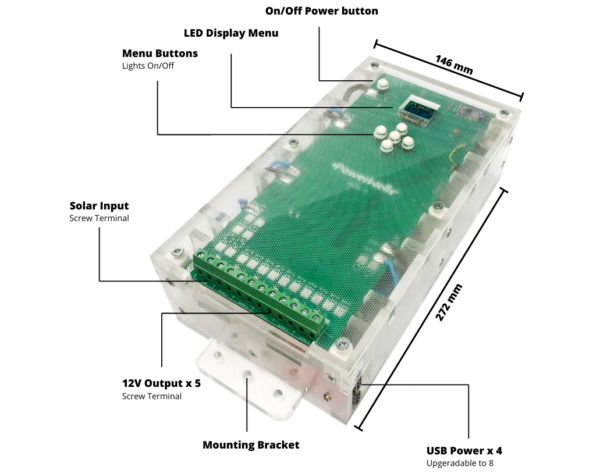
Image: PowerWells
Solar units are provided to households through the WITTT network at an affordable, monthly rent-to-own basis, with all funds going directly back into a community fund.
The partnership powering homes and empowers women with the skills and confidence to take ownership of their energy needs, receiving training from PowerWells on installing and maintaining their solar units.
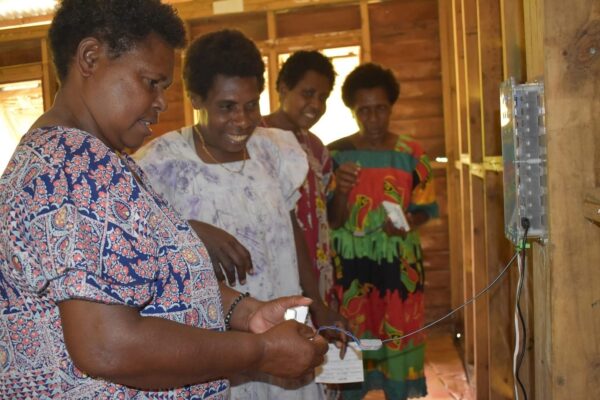
Image: Australian Infrastructure Financing Facility for the Pacific
PowerWells Founder Bradley Clair said for many it was the first time using a screwdriver – let alone power tools, multimeters, wire strippers, and soldering irons.
“But by the end of the training, they were assembling and installing solar systems like pros,” Clair said.
ActionAid Vanuatu Finance and Operations Manager Helen Bong said the mama (women) in the community wanted to learn and practice.
“Most of them didn’t even know which wire was positive or negative, but they were eager to understand and do the job,” Bong said.
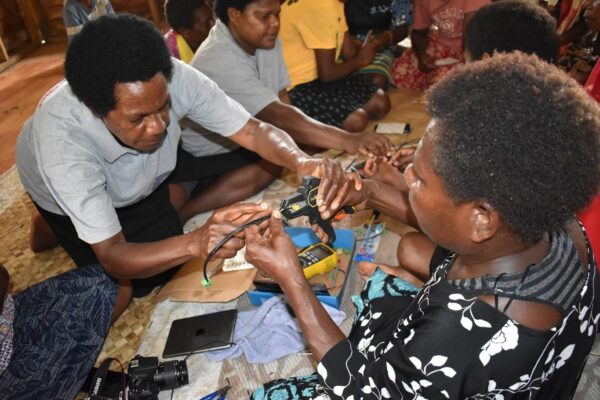
Image: Australian Infrastructure Financing Facility for the Pacific
The energy transition of Lawital has also been supported by Off-Grid Renewable Energy Partnerships under the Australiagovernment’s Pacific Climate Infrastructure Financing Partnership (PCIFP) initiative to expand the AIFFP’s climate investments.
It partners with businesses to deliver reliable and sustainable renewable energy to remote and rural communities in the Pacific and Timor-Leste, implemented by the Business Partnerships Platform (BPP).
Through AIFFP, the Australian government has recently launched the first grant round for REnew Pacific, a new $75 million long-term off-grid renewable energy program to support communities like Lawital across the region, to mitigate, adapt and build resilience against climate change.
This content is protected by copyright and may not be reused. If you want to cooperate with us and would like to reuse some of our content, please contact: editors@pv-magazine.com.
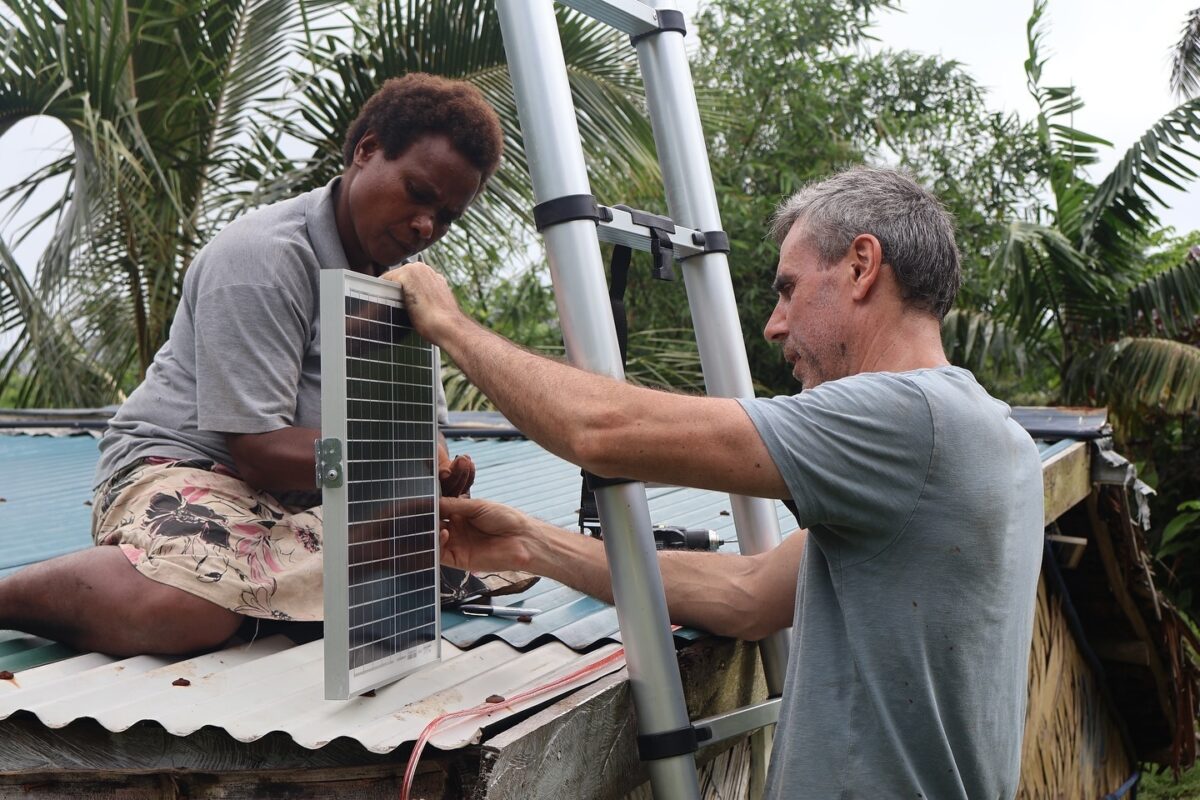
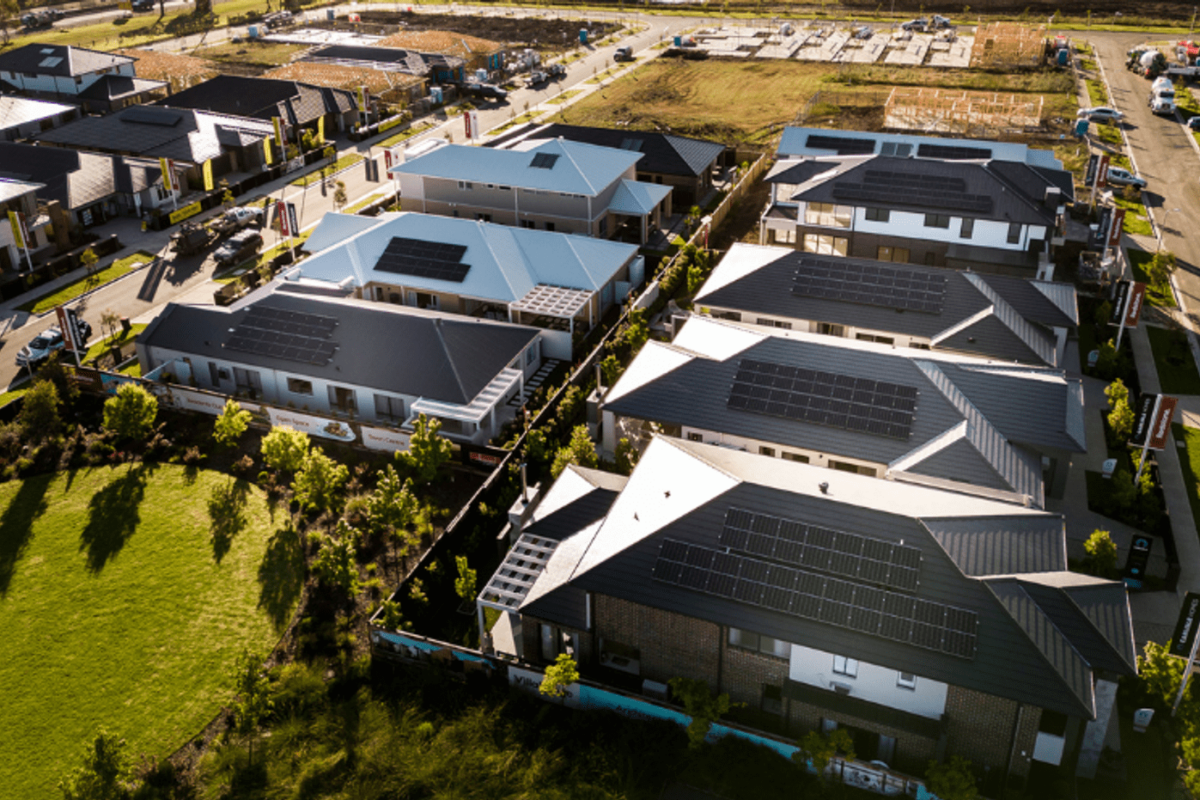







By submitting this form you agree to pv magazine using your data for the purposes of publishing your comment.
Your personal data will only be disclosed or otherwise transmitted to third parties for the purposes of spam filtering or if this is necessary for technical maintenance of the website. Any other transfer to third parties will not take place unless this is justified on the basis of applicable data protection regulations or if pv magazine is legally obliged to do so.
You may revoke this consent at any time with effect for the future, in which case your personal data will be deleted immediately. Otherwise, your data will be deleted if pv magazine has processed your request or the purpose of data storage is fulfilled.
Further information on data privacy can be found in our Data Protection Policy.